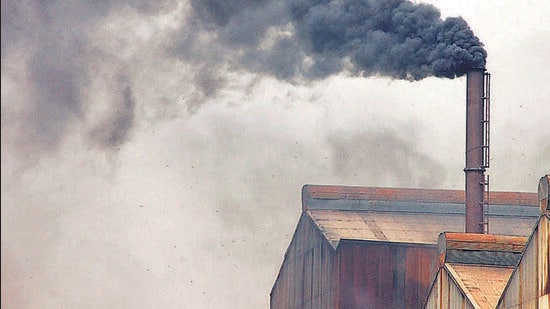Industries in Rajasthan, UP, Haryana must shift to clean fuels by Sept 30: CAQM
Till the deadline, industries could meanwhile utilise only fuels approved for industrial operations by the respective state governments, said officials aware of the matter
All industries in Haryana, Uttar Pradesh (UP) and Rajasthan that are within the National Capital Region (NCR) must transition to PNG or biomass fuel by September 30 this year, or be shut down, the Commission for Air Quality Management (CAQM) said in an order issued on Wednesday.

The pollution control panel said the decision was taken after conversations with companies, associations and the state governments concerned.
“A large number of associations, federations and individuals submitted before the Commission their requests for permitting use of biomass fuels in addition to PNG [piped natural gas], citing that biomass-based fuels are much more environment friendly than fossil fuels like HSD [high-speed diesel] and coal,” said the order.
To be sure, industries in Delhi have already shifted to cleaner fuels, including PNG, the panel said in its order to the three states, said.
Also Read | Delhi residents wake up to ‘severe’ air quality
Till the deadline, industries could meanwhile utilise only fuels approved for industrial operations by the respective state governments, said officials aware of the matter.
The emissions from industries using polluting fuels like coal, diesel, etc., create an adverse impact on air quality in the NCR and shifting of industries to PNG and cleaner fuels has always been a priority for CAQM. Apart from that, open burning of biomass is also one of the major causes for air pollution in NCR,” said CAQM in a statement.
Officials said once the transition is made, not only will it minimise the impact of polluting fuels in NCR in contributing to air pollution, it will also ensure proper utilization of biomass for farmers.
“All industries in the NCR running on coal, if shifted to PNG or biomass fuels in conjunction with Air Pollution Control Devices (APCD), would result in a remarkable decline in biomass burning across different regions of NCR and adjoining areas, thereby improving the air quality,” said a CAQM official.






